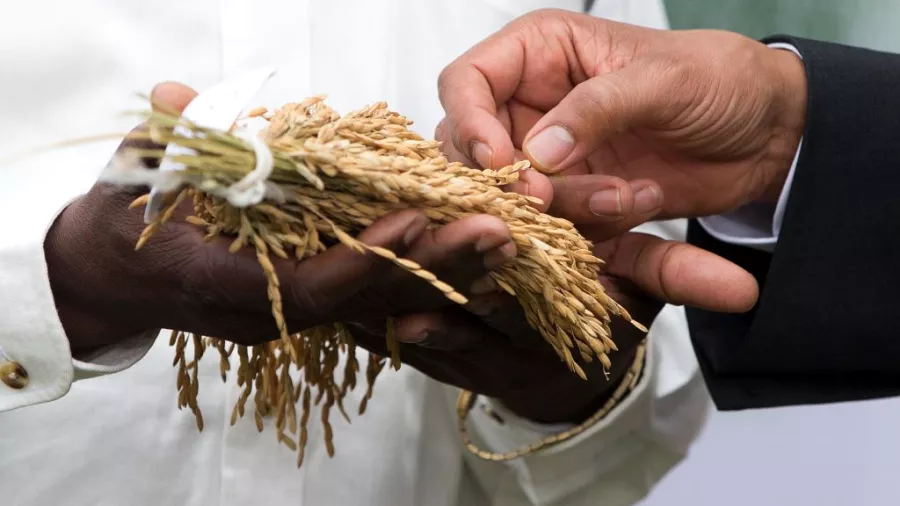
Senegal’s government is set to reinstate a 10% customs duty on imported broken rice, a staple food for many households, but officials and consumer groups assure the public that retail prices will remain stable.
This commitment is backed by falling global rice prices and a strengthened regulatory framework designed to prevent unwarranted price increases.
After a period of tariff suspension, the Ministry of Industry and Trade has formally requested the Ministry of Finance to reinstate duties on ordinary broken rice imports.
The revised duty calculation base is fixed at 210,000 FCFA per tonne, reflecting pre-2024 rates. Despite this reintroduction of customs fees, the government insists the price per kilogram will stay steady at 350 FCFA, the price level maintained since April.
This assurance relies on the current favorable trends in the international market, which have seen rice prices decline, effectively offsetting the impact of the renewed tax. Moreover, enhanced oversight of the supply chain aims to curb excessive profit margins by intermediaries, a common cause of inflated consumer prices.
Senegalese consumers have long faced speculative price surges disconnected from global market realities. To address this, the Ministry recently launched a citizen monitoring programme involving 1,000 volunteers tasked with tracking price displays across markets and retail outlets.
This initiative is unprecedented in scope, intended to empower authorities to act swiftly against unjustified price hikes and rebuild trust between traders and consumers amidst ongoing economic challenges.
Speaking on SUD FM, the secretary general of the consumer association ASCOSEN expressed cautious optimism, stating that the reinstated duties should not affect the retail price of broken rice or sugar, which currently sells at 600 FCFA per kilo. He emphasized that falling global prices provide sufficient buffer to absorb the duty without additional strain on households.
The real test will come at the markets and shops. Should prices remain stable despite the tariff’s return, it will mark a significant regulatory success. Conversely, any upward price movement risks undermining efforts to control living costs and could deepen consumer hardship in Senegal.



